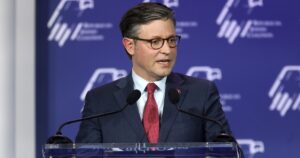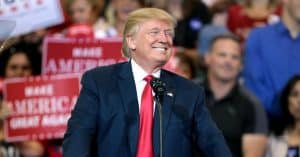Pierre Poilievre Poised to Seek Leadership Amid Trudeau's Departure
With Prime Minister Justin Trudeau stepping down as the leader of the Liberal Party, the political landscape in Canada is shifting dramatically.
The resignation of Trudeau opens a path for Pierre Poilievre, leader of the Conservative Party, who is positioned to challenge the current minority government in an upcoming confidence vote, Fox News reported.
In recent political developments, Canadian leader Justin Trudeau announced he will resign, shaking the country's political scene. Trudeau, who has led the Liberal Party since 2015, made the surprise announcement amid growing public dissatisfaction with his leadership.
The Opposition Leader, Pierre Poilievre, who has been at the helm of the Conservative Party since 2022, stands ready to seize the opportunity. Poilievre, first elected to the House of Commons in 2004, is now looking to advance his party's agenda and capitalize on the moment.
Potential National Election Looms on the Horizon
This political change might precipitate a national election. A key moment is expected when the House of Commons reconvenes on March 24. Should opposition parties succeed in a no-confidence vote against the fragile Liberal minority government, Canadians could head to the polls as early as this spring.
Poilievre has expressed robust plans for Canada's economic and energy sectors. His strategy includes speeding up approvals for energy projects like oil refineries and nuclear facilities. By boosting Canada's energy dealings with the U.S., Poilievre intends to enhance the nation’s economic surplus, addressing current concerns about the undervalued sale of Canadian oil and gas.
Critics of the current administration, like Poilevre, highlight issues in governance. He has pointed to what he calls a "radical ideology" among Liberals, characterizing it as authoritarian and socialist in nature. He further criticizes the broader cultural shifts under the current regime, labeling them "horrendous, utopian wokeism" that benefits certain elites at the expense of ordinary Canadians.
Key Domestic Policies in Poilievre's Platform
Poilievre's policy proposals extend beyond the energy sector. He advocates for a firm crackdown on crime, promising to take measures such as locking up offenders, imposing drug bans, and combating gun smuggling. In addition, he has outlined intentions to renegotiate the Safe Third Country Agreement with the U.S., a critical aspect of Canadian immigration policy.
A distinct element of his foreign policy stance is the recognition of Jerusalem as Israel's capital, diverging from the current practice of having Canada's embassy in Tel Aviv. These policy platforms reflect a combination of domestic and international ambitions for Poilievre's party.
In response to Trudeau’s resignation, Poilievre maintains that the fundamentals of Canadian politics remain unchanged. His message to the public emphasizes a reclamation of control, promising a return to Canadian sovereignty in areas like border security, fiscal management, and national safety.
Contrasting Visions for Canada's Future
The outgoing prime minister, Justin Trudeau, compares Poilievre’s approach to that of former U.S. President Donald Trump, suggesting that the Conservative leader seeks to echo the American slogan of making a country "great again." Poilievre, however, asserts Canada's distinct identity, dismissing any notion that the country could become akin to the 51st U.S. state.
Though he acknowledges Trump's negotiation style as aggressive, Poilievre focuses on a distinctly Canadian agenda, stating that aims to "secure borders, rearm our forces, restore our freedom and put Canada First," with clear priorities for governance and national identity.
Ultimately, Poilievre frames his leadership as a pursuit of reviving what he terms the "Canadian dream," aiming to reposition Canada both domestically and on the global stage.
As Canada enters this possible transitional period, citizens will look closely at the emerging political dynamics. Pierre Poilievre stands at a pivotal moment, with the potential for substantial influence in shaping the country's future.




